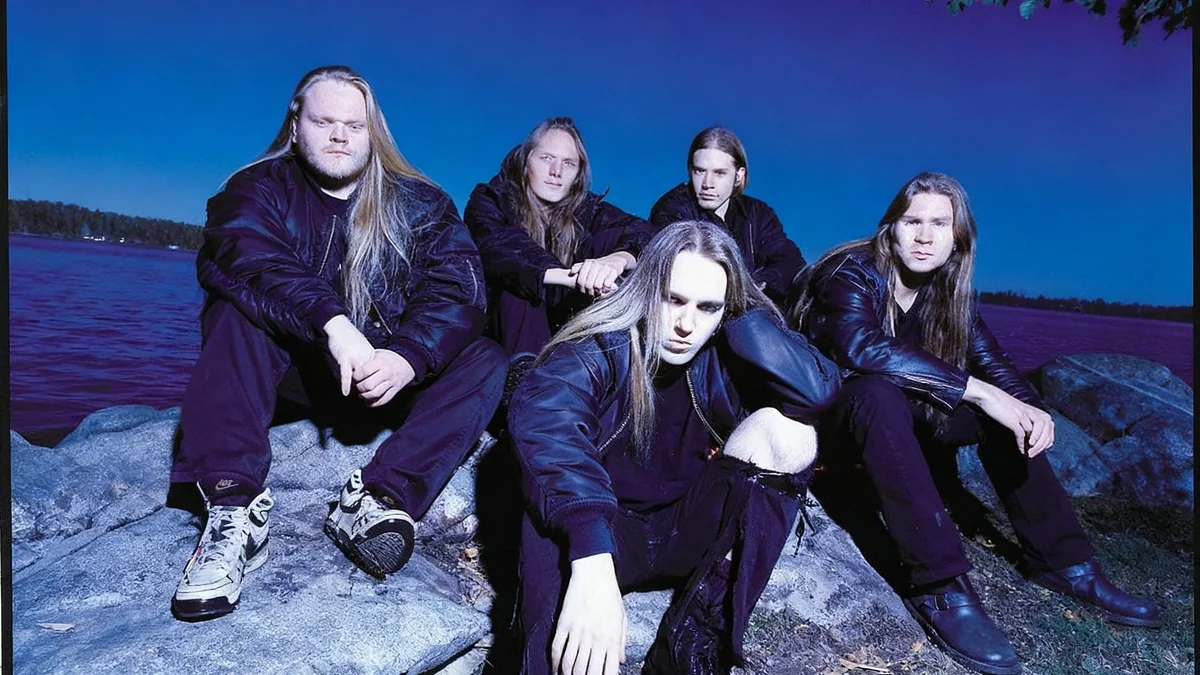Taurees Habib, the Grammy-winning sound engineer known for his work with Hans Zimmer, has officially launched his solo music career with the release of his new single, 'Cannibal Cathedral'. The track marks a significant shift for Habib, moving from his established behind-the-scenes role in Hollywood film scores to a new identity as a solo artist.
Habib's Grammy win earlier this year for his contribution to the film *Dune: Part Two* in the Best Score Soundtrack for Visual Media category brought him international recognition. This achievement made him the first Pakistani sound engineer to receive the award and the second Pakistani artist overall, following Arooj Aftab.
Key Takeaways
- Taurees Habib, a Grammy-winning sound engineer, has released his first solo single, 'Cannibal Cathedral'.
- Habib worked with Hans Zimmer on major films like *Dune*, *Interstellar*, and *Top Gun: Maverick*.
- His Grammy win for *Dune: Part Two* made him the first Pakistani sound engineer to receive the award.
- 'Cannibal Cathedral' is described as a moody, cinematic, and upbeat track.
- Habib aims to move beyond his Grammy recognition and establish his own musical identity.
From Hollywood Scores to Solo Artist
For over 13 years, Taurees Habib collaborated extensively with acclaimed composer Hans Zimmer. Their partnership resulted in contributions to numerous blockbuster films. These include iconic titles such as *Interstellar*, *Dunkirk*, *Blade Runner 2049*, *The Lion King*, *No Time To Die*, *Top Gun: Maverick*, and both *Dune* films.
Despite his extensive work, Habib's Grammy win came as a surprise. He was not at the awards ceremony. Instead, he learned of his victory through a text message while in his kitchen. "I just wish I wasn’t standing in my kitchen, in my shorts," Habib said, recalling the moment. "But I guess that was my Grammy attire."
Fact: Grammy Recognition
Taurees Habib received his Grammy for Best Score Soundtrack for Visual Media for his work on *Dune: Part Two*. This marked his first win after seven previous nominations with Hans Zimmer's team.
The award solidified Habib's reputation as a top talent in Hollywood's sound engineering field. However, he is now focused on a new goal: stepping into the forefront as a musician under his own name. This transition marks a significant evolution in his career.
The Genesis of 'Cannibal Cathedral'
Habib's new single, 'Cannibal Cathedral', represents the official launch of his solo musical journey. The track is characterized by its moody, cinematic, and upbeat qualities. A press release for the song describes its sound as a fusion, likening it to "Trent Reznor and Alex Turner colliding inside a David Lynch fever dream."
The inspiration for 'Cannibal Cathedral' struck Habib in 2020. He was in his kitchen late one night, looking for a snack, when a melody came to him. "I sang it into my phone immediately. That line just stuck around in my brain for years until I finally wrote it out," he explained.
"For me, the song is about exploring your own darkness — it’s like going into the basement. Some people never come back from that, some bring something with them, and some never open that door."
— Taurees Habib, on 'Cannibal Cathedral'
Early Musical Explorations
This is not Habib's first venture into solo music. Nearly a decade ago, he released an EP under the name Bedlam Jackson. He also performed live shows during that period. "That was me proving to myself that I could do it all — write, record, produce, perform," Habib stated.
However, that earlier project did not gain significant traction. It lacked marketing and support. "I outgrew it quickly. Back then, I thought making music was enough. Now, I’ve got a team to help me actually get it heard," he added. With 'Cannibal Cathedral', Habib aims for broader reach and impact.
Background: Early Influences
As a teenager in Karachi, Taurees Habib was active in the city's underground metal music scene. This period shaped his early musical development, focusing on intense, technical guitar riffs and energetic performances.
Developing a Unique Sound
Habib's musical journey involved a significant evolution from his metal roots. He realized he wanted more than just fast and loud music. "At some point, I realised I didn’t want to just play fast or loud. I wanted groove, mood, sexiness, something more expansive," he noted.
A pivotal moment occurred during music school. He was part of a metal ensemble with four guitarists. "There should never be a band with four guitar players. And if it’s a metal band, even worse. It was just static because everyone was distorted and loud," Habib recalled. This experience made him realize he was focusing too much on complex parts and not enough on listening. This marked a turning point in his approach to music.
Qawwali's Influence on Vocals
After graduating from the Berklee College of Music, Habib returned to Karachi. He spent eight months studying qawwali intensively with Rauf Saami of the renowned Saami Brothers. This training proved crucial for his vocal development.
"I hated the way my voice sounded in recordings. Training in qawwali gave me the technical control I’d been missing," Habib explained. While the influence may not be immediately obvious in his current songs, he believes it fundamentally changed his singing style.
Key Training: Qawwali
Habib's qawwali training with Rauf Saami was instrumental in improving his vocal control, a skill he felt was missing earlier in his career.
The result of these diverse experiences is a hybrid sound. It blends cinematic rock, industrial atmospheres, and subtle South Asian elements. This unique combination makes his music difficult to categorize, reflecting Habib's own multifaceted identity.
Beyond the Grammy: Representing Culture Authentically
Habib is keen to avoid being solely defined by his Grammy win. He does not want to be reduced to the label of "Pakistani Grammy winner." His focus is on personal and professional authenticity.
"I don’t sit down thinking, I need to do this for Pakistan. I just try to be the best version of myself, and let that speak for itself," he emphasized. For Habib, representing his culture means showing up professionally, consistently, and authentically in his work.
He hopes his increased visibility will open doors for other artists. "I hope it’s not just, ‘hey, look at Taurees’ shiny new toy.’ I hope it makes people curious about where else this kind of music is happening under our noses," he stated. Habib believes there is a wealth of incredible and eclectic music being made in Pakistan that remains largely undiscovered.
- Goal: Inspire interest in other Pakistani artists.
- Example: If listeners find 'Cannibal Cathedral' and then seek out acts like Alien Panda Jury, it is considered a success.
Future Plans: More Music on the Horizon
What comes next for Taurees Habib are more single releases. He has several tracks already prepared, written during a period of self-imposed isolation. This retreat took place in a mountain cabin during the COVID-19 pandemic.
Habib is taking a different approach to promoting his new music this time. "Last time, I thought: I made the art, now people will just find it. This time, I want to make it easy for them to find it," he said. This indicates a more strategic and supported effort to share his work with a wider audience.
From Karachi's underground metal scene to Berklee College of Music, and then to qawwali lessons and a Grammy, Habib's journey has been diverse. With 'Cannibal Cathedral', he is now stepping into the spotlight on his own terms.




